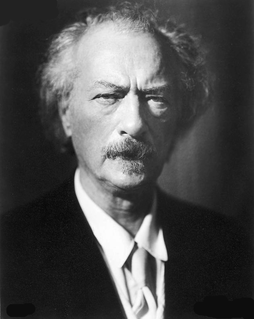A Quote by Eleanor Roosevelt
We have reached a point today where labor-saving devices are good only when they do not throw the worker out of his job.
Related Quotes
Between labor and play stands work. A man is a worker if he is personally interested in the job which society pays him to do; whatfrom the point of view of society is necessary labor is from his point of view voluntary play. Whether a job is to be classified as labor or work depends, not on the job itself, but on the tastes of the individual who undertakes it. The difference does not, for example, coincide with the difference between a manual and a mental job; a gardener or a cobbler may be a worker, a bank clerk a laborer.
A willing, cheerful worker, with his heart in his job, will turn out more work and more satisfactory work in 44 hours than an unwilling worker, dissatisfied with his conditions, will turn out in 54 hours. It is good business, therefore, for every employer to go as far as he possibly can in reaching a schedule agreeable to his people.
Labor produces marvels for the rich but it produces deprivation for the worker. It produces palaces, but hovels for the worker. It produces beauty, but deformity for the worker. It replaces labor by machines, but it throws one section of the workers back to barbaric labor, and it turns the remainder into machines.
Whatever you may be thinking when you apply for a job today, you can be sure the employer is asking this: Can this person add value every hour, every day - more than a worker in India, a robot or a computer? Can he or she help my company adapt by not only doing the job today but also reinventing the job for tomorrow?
Labor, being itself a commodity, is measured as such by the labor time needed to produce the labor-commodity. And what is needed to produce this labor-commodity? Just enough labor time to produce the objects indispensable to the constant maintenance of labor, that is, to keep the worker alive and in a condition to propagate his race. The natural price of labor is no other than the wage minimum.
There is nothing a worker resents more than to see some man taking his job. A factory can be closed down, its chimneys smokeless, waiting for the worker to come back to his job, and all will be peaceful. But the moment workers are imported, and the striker sees his own place usurped, there is bound to be trouble.
In the name of economy a thousand wasteful devices would be invented; and in the name of efficiency new forms of mechanical time-wasting would be devised: both processes gained speed through the nineteenth century and have come close to the limit of extravagant futility in our own time. But labor-saving devices could only achieve their end-that of freeing mankind for higher functions-if the standard of living remained stable. The dogma of increasing wants nullified every real economy and set the community in a collective squirrel-cage.































